Strategic Plans: How do Arts Initiatives Base on Community
Why is community very significant for museums?As we know that the main source of the museum is the community cultural relics and the main audiences for the exhibition are the community people. Also, the key purpose of museums’ research is to serve the community. Thus, community involvement is an important aid to museum education. Whether it is a specialized museum or a local museum, its main audience comes from local or nearby communities. Therefore, the collection, exhibition, research, education of a museum and the community must have a close relationship.
Thus, how to involve the community in arts initiatives’ strategic plans is the basic idea to operate a museum and gain maximum effect. As TDC said that, “A strategic plan is a tool that provides guidance in fulfilling a mission with maximum efficiency and impact. If it is to be effective and useful, it should articulate specific goals and describe the action steps and resources needed to accomplish them.” Strategic planning is a matter that needs careful thought. Based on the community, museums can design more realistic and socially meaningful programs. Let’s see the Asian Art Initiative and Mural Arts Philadelphia’s missions which are good examples to illustrate the strategies.
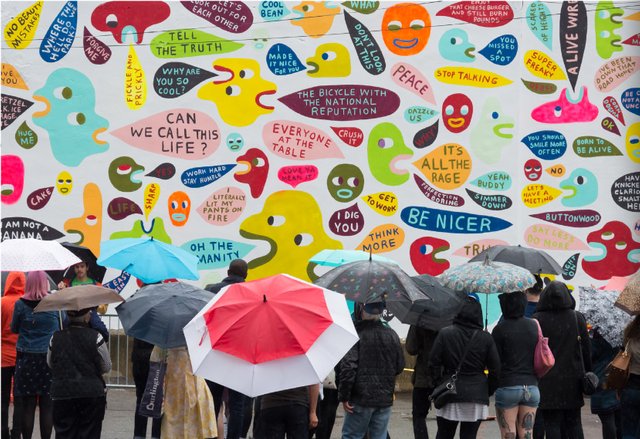
(Photo: Anual Report 2016 Mural Arts)
Asian Arts Initiative: Mission
Through exhibitions, performances, and community projects, we provide an inclusive gathering place for conversation and exchange of ideas. Our community-based arts initiatives seek out and cultivate innovative models for artists to engage with local communities, with a particular emphasis on working in partnership with our immediate neighborhood.
Our multi-tenant arts facility, situated in a former Warner Brothers screening house, serves as a resource for the broader cultural community, with individual artist studios as well as organizational and program space — including room for workshops and meetings; gallery and exhibition areas; and a black-box-style theater.asianartsinitiative
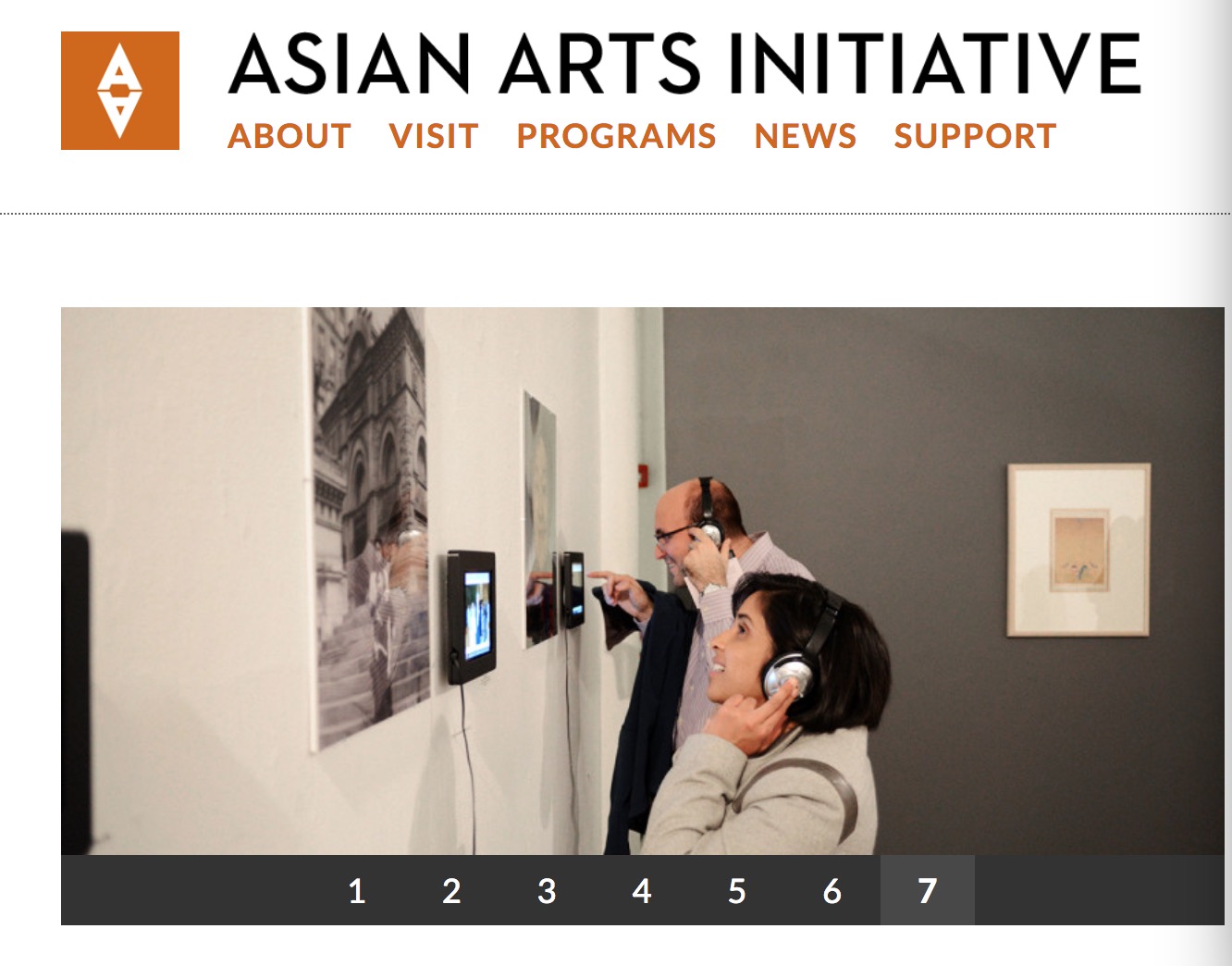
(Photo: asianartsinitiative)
We could see that Asian Arts Initiative has the strong awareness about community cooperation. They offer gathering places for people to come and share ideas. The first step to design the partnership is to find a shared vision and clearly articulated values. To be beneficial to partnering community, Asian Arts Initiative could build collaborative relationships with them, which based on trust and mutual respect. Also, they involve the participation of multiple sectors that act in service of a complex mission.
Mural Arts Philadelphia: Mission
WE BELIEVE ART IGNITES CHANGE.
We create art with others to transform places, individuals, communities and institutions. Through this work, we establish new standards of excellence in the practice of public and contemporary art.
Our process empowers artists to be change agents, stimulates dialogue about critical issues, and builds bridges of connection and understanding.
Our work is created in service of a larger movement that values equity, fairness and progress across all of society.
We listen with empathetic ears to understand the aspirations of our partners and participants. And through beautiful collaborative art, we provide people with the inspiration and tools to seize their own future.muralarts
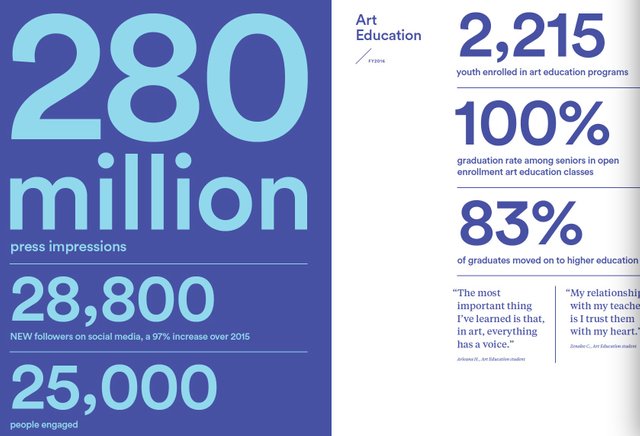
(Photo: Anual Report 2016 Mural Arts)
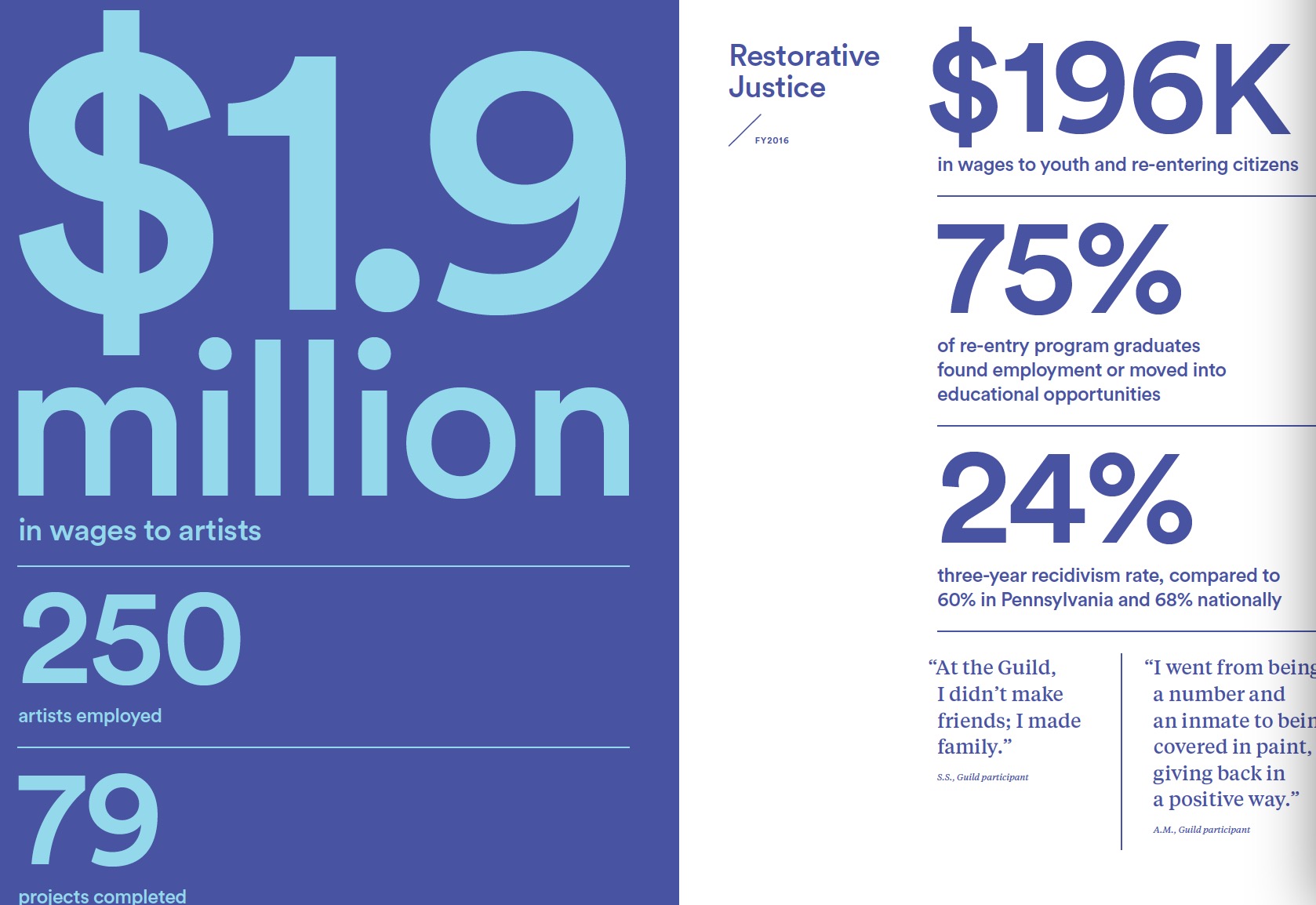
(Photo: Anual Report 2016 Mural Arts)
Mural Arts Philadelphia also has a useful planning which is based on public and community. I think the most significant part is that they could sustain the partnership with communities over time. There is clear, open, and accessible communication between partners, making it an ongoing priority to listen to each need, to develop a common language, and to validate or clarify terms. When I read the book, Philadelphia Murals and The Stories They Tell, I was surprised that in order to create a good community environment, they knock on doors to listen to the opinions of the masses. Mural Arts focuses on the feedback from all stakeholders and artists in the partnership with the goal of continuously improving the relationship and outcomes. They not only pay attention to the interaction with the community, but also serve the community, letting the education of the community develop, and create chances for every child to participate in mural arts.

(Photo: Anual Report 2016 Mural Arts)
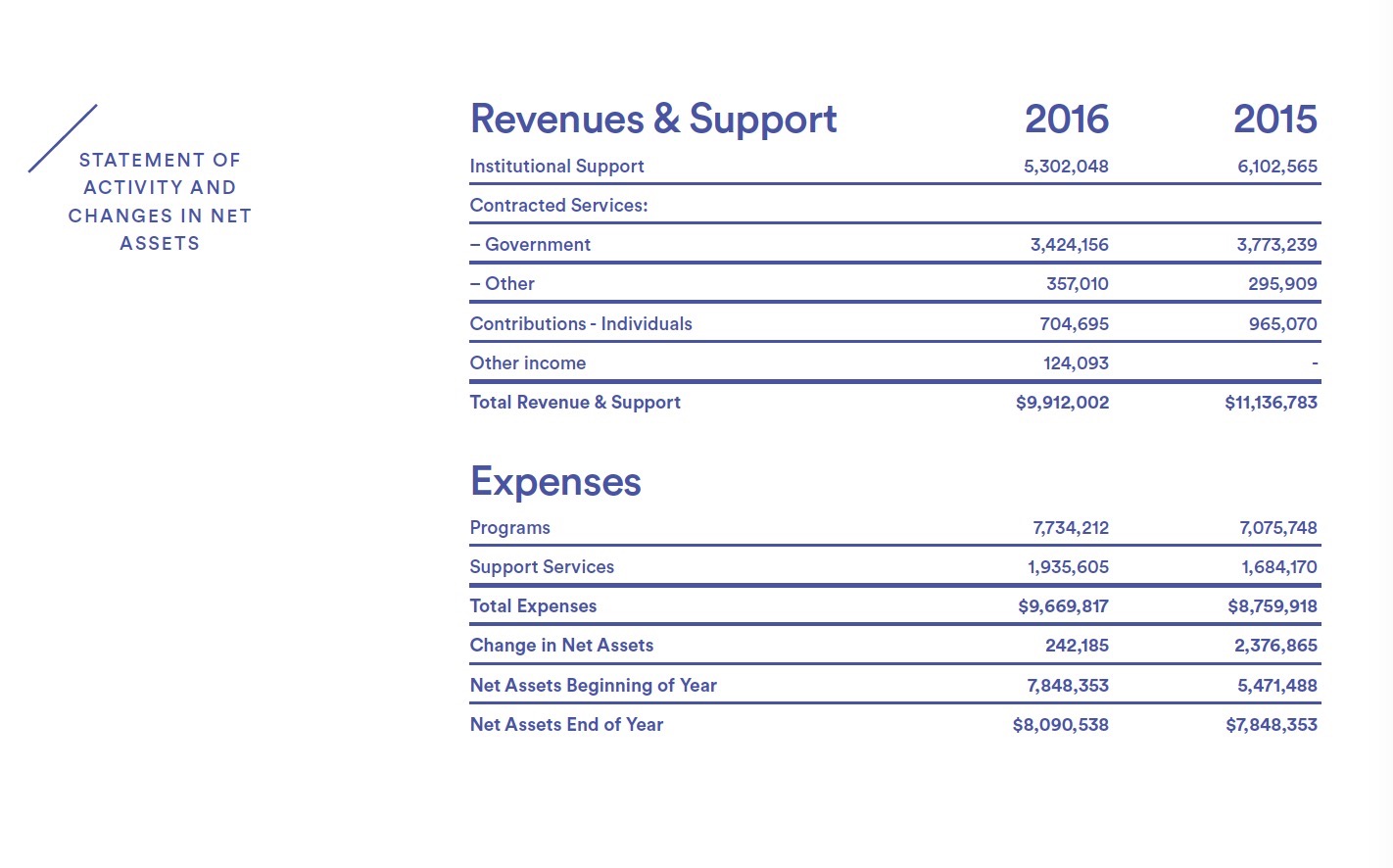
(Photo: Anual Report 2016 Mural Arts)
Cooperation with business is also a part of the relationship with communities. Many people think that the public interest should be pure, refusing to take the marketing tactics of business thinking, and also exclude corporate sponsorship and cooperation. Although the objective of public welfare is different from that of business, its operation is consistent with the commercial market norms, that is, providing the service clients with "products" that satisfy the demand. However, the idea of "pure art " not only neglects the opportunity of using the g commercial law to realize the reusable marketing of public goods, but also stifle the possibility of nonprofit organizations working with enterprises to realize value exchange or sharing value.
Last but not the least, publicity is an important part to attract audiences. Many nonprofit organizations' concepts and products are "poor popular", which has a certain distance from daily life, resulting in relatively few customers. Coupled with the lack of proper content, effective forms, and continuous communication mechanisms in publicity activities and media promotion, it is difficult to attract the public's attention and win trust so as to further hinder the market access.
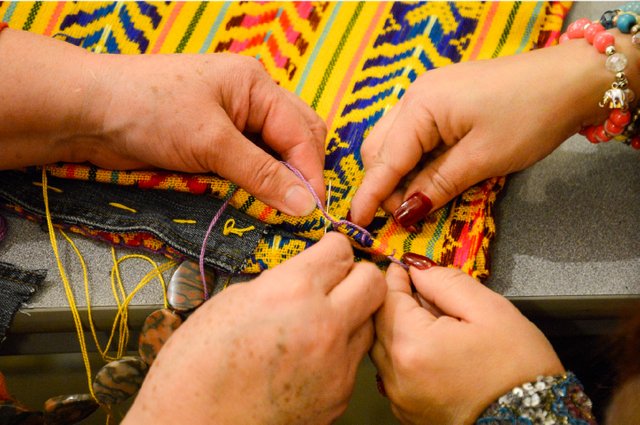
100% of the SBD rewards from this #explore1918 post will support the Philadelphia History Initiative @phillyhistory. This crypto-experiment conducted by graduate courses at Temple University's Center for Public History and MLA Program, is exploring history and empowering education. Click here to learn more.
SUCH A FUN POST! I LIKE IT! HAPPY VALENTINE!
Thanks, Happy Valentine's Day!
LOTS of good information is this post! Reading it, I am inclined to ask: What's the conclusion? What's your recommendation for best practices when resources are less than ideal?